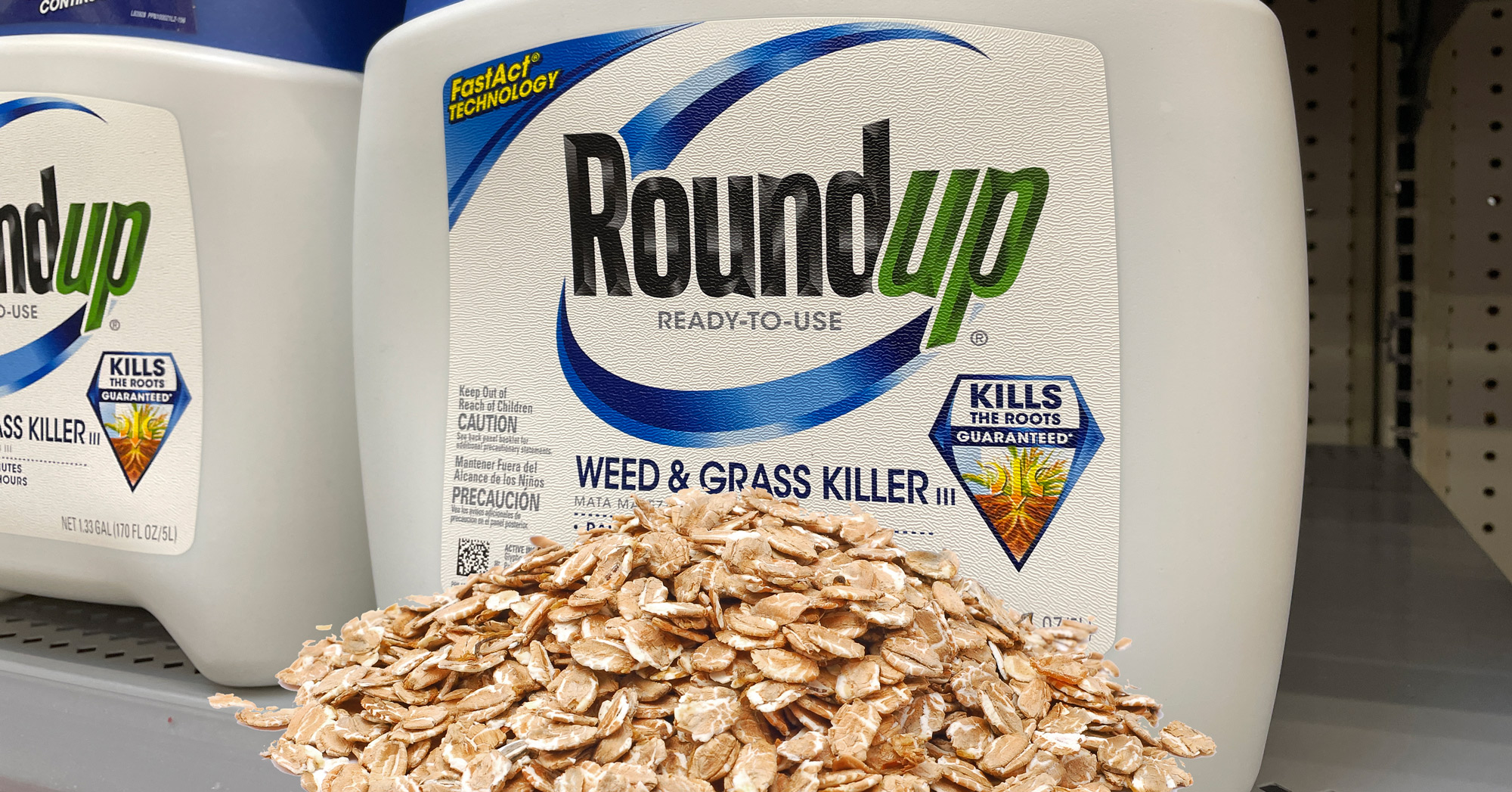
Major grain trader has banned its farmer suppliers from using glyphosate and other controversial chemicals. Report: Claire Robinson
After years of being detected at alarming levels, the pesticide glyphosate is being found at lower levels, on average, in cereal and other oat-based products that children and adults enjoy, according to tests by the American nonprofit Environmental Working Group (EWG).
EWG believes its calls for an end to the pre-harvest use of glyphosate on oats may have helped drive change. However, EWG reports that this toxic chemical is still showing up in popular brands of cereals and other oat-based products. Thirty percent of items tested showed high amounts of the pesticide.
It's possible that the decline in glyphosate levels that EWG is seeing is the result of pressure on farmers by grain traders to grow their crops without glyphosate and certain other pesticides of concern. A farmer based in Canada circulated a document that the Canada-based leading agricultural processing and distribution company Adroit is asking its supplier farmers to sign. In signing, the farmer promises not to use certain agrochemicals that, while approved for use in Canada, “may result in residues that are not acceptable in certain export markets”.
The banned chemicals include glyphosate when applied to oats. Other proscribed chemicals include glufosinate ammonium, chormequat, and several others when applied to a wide variety of crops, namely barley, beans, buckwheat, canola, faba beans, flaxseed, lentils, mustard seed, oats, peas, rapeseed, rye, triticale, and wheat.
“Major shift in the right direction”
Most US imports of oats come from Canada. So it's possible that drop in glyphosate levels seen in oats bought in the US are being driven by enforced farmer abstinence in Canada.
Henry Rowlands, director of The Detox Project, which carries out glyphosate testing for citizens and the food sector, agrees: “There has been a major shift in the right direction by some of the largest agricultural companies in Canada when it comes to pre-harvest spraying of glyphosate [“desiccation”]. The shift started with Richardson International, Canada’s largest agribusiness, refusing to accept oat crops that had been desiccated in 2021. This decision has now started to spread industry wide.
“However, we are still seeing high levels of glyphosate in oat crops from the northern states of the US, where the major agricultural companies have not made the same positive moves. It is also true that many other types of crops from wheat to potatoes seem to have similar or higher levels of glyphosate than they did five years ago, due to similar off-label pre-harvest spraying practices.”
“Concerning” for farmers
While the drop in glyphosate levels in oats is good news for consumers, the farmer who sent us the Adroit document says it's a “very concerning matter for farmers”, because farmers who don't use glyphosate or another Adroit-proscribed chemical could nevertheless unknowingly deliver grain contaminated by herbicide drift or contaminated irrigation water and “be held responsible for the consequences”.
We’re assuming the document means that farmers have to avoid using the chemicals themselves but can't be held responsible for inadvertent contamination. But while farmers whose crop is found to be contaminated may not be falsely accused of spraying, it does seem likely that they will lose the sale of their crop to Adroit. That's a pretty serious consequence.
The farmer is also angry that governments’ and regulators’ failure to ban certain toxic chemicals from use has pushed the responsibility onto farmers – even though “The ultimate responsibility must lie with the chemical companies… they have found a way to possibly escape liability for the damaging effects of their products”.
By kicking the can of responsibility for toxic pesticides down the road, regulators have left the job of restricting these chemicals to the marketplace and to farmers. Pressure is feeding into the system from the courts, where glyphosate-based herbicides have been found to have caused people’s cancer, even though regulators continue to deny what is by now a well evidenced link. Clearly the regulatory system as it currently exists is not fit for purpose and must be rebuilt from the bottom up.










